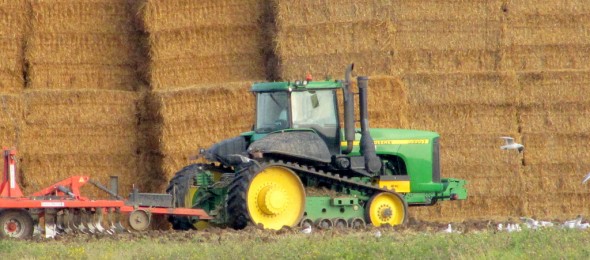The United States Court of Appeals for the Fifth Circuit has affirmed a district court’s order compelling arbitration despite one party’s avoidance attempts. In Richland Equipment Co., Inc. v. Deere & Company, No. 17-60631 (5th Cir., August 13, 2018) Richland Equipment Company (“Richland”) entered into two dealership agreements, an Agricultural Dealer Agreement (“Ag DA”) and a Consumer Products Dealer Agreement (“CP DA”), to sell John Deere products in 1986. Neither agreement contained an arbitration clause.
In 2001, Richland entered into a third contract, the Commercial Worksite Products Dealer Agreement (“CWP DA”), with John Deere. The CWP DA contained an arbitration provision requiring that “any dispute” between the two companies be resolved through binding arbitration in accordance with the rules of JAMS. The CWP DA also included a termination notice which stated John Deere “may cancel the Dealer’s appointment at any time after the happening of . . . [a] [t]ermination (or notice of termination) of any John Deere Dealer Agreement that the dealer . . . has with the Company.”
Following a lengthy dispute between the two companies regarding whether Richland sufficiently promoted John Deere products, Richland agreed to meet certain sales quotas for three years. After Richland failed to meet those goals, John Deere sent the company a notice of termination of the Ag DA and “any other agreements that may exist between Richland Equipment Co., Inc. and Deere & Company.” Richland responded to the termination notice by filing a lawsuit against John Deere in the Southern District of Mississippi. In its complaint, Richland sought to enjoin John Deere from terminating the three dealership contracts and accused the company of providing other dealers with a more beneficial pricing structure in violation of federal law.
Next, John Deere filed a motion to compel the case to arbitration based on the CWP DA. In response, Richland filed an amended complaint consenting to the termination of the CWP DA and removing all claims related to that specific agreement. Richland also argued John Deere’s motion to compel arbitration should be denied since the CWP DA was no longer a part of the dispute. The district court was not persuaded and granted John Deere’s motion. Richland then filed an appeal with the nation’s Fifth Circuit.
In an unpublished opinion, the appellate court first stated:
Richland contends that it cannot be compelled to arbitrate its claims because it did not agree to arbitration under the AG DA and the CP DA. It relies on Torrence v. Murphy for the proposition that “a party cannot be required to submit to arbitration any dispute which he has not agreed to so submit.” 815 F. Supp. 965, 971 (S.D. Miss. 1993). True enough. But, under the CWP DA, Richland did agree to arbitration of the present dispute.
Next, the court said:
Further, the termination of an agreement containing an arbitration clause does not automatically extinguish the parties’ duty to arbitrate disputes. Nolde Bros., Inc. v. Local No. 358, Bakery & Confectionery Workers Union, AFL-CIO, 430 U.S. 243, 251 (1977); see also Rive v. Briggs of Cancun, Inc., 82 F. App’x 359, 363 (5th Cir. 2003). To hold otherwise, the Supreme Court explained, would create disorder and unpredictability. See Nolde, 430 U.S. at 250–51. The converse “would preclude the entry of a post-contract arbitration order even when the dispute arose during the life of the contract but arbitration proceedings had not begun before termination.” Id. at 251. Similarly, an arbitration clause would be unenforceable “if arbitration processes began[,] but were not completed, during the contract’s term.” Id. The Supreme Court contemplated this precise situation—where a contract requiring arbitration terminates after a dispute arises. As in Nolde, there is no evidence that the parties here intended for disputes to be resolved in arbitration before termination of the CWP DA and in court afterward. Thus the court finds the parties are subject to a valid and enforceable arbitration agreement.
After that, the Fifth Circuit found the issue of arbitrability was successfully delegated to an arbitrator before stating:
In sum, the parties’ express intent to enter into an arbitration clause, the terms of the arbitration clause, including its delegation and “any dispute” provisions, and the cross-termination clause all support the conclusion that the district court did not err in granting Deere’s motion to compel arbitration.
Finally, the United States Court of Appeals for the Fifth Circuit affirmed the district court’s order granting John Deere’s motion to compel arbitration.
Photo credit: Mostly Dans on Foter.com / CC BY














